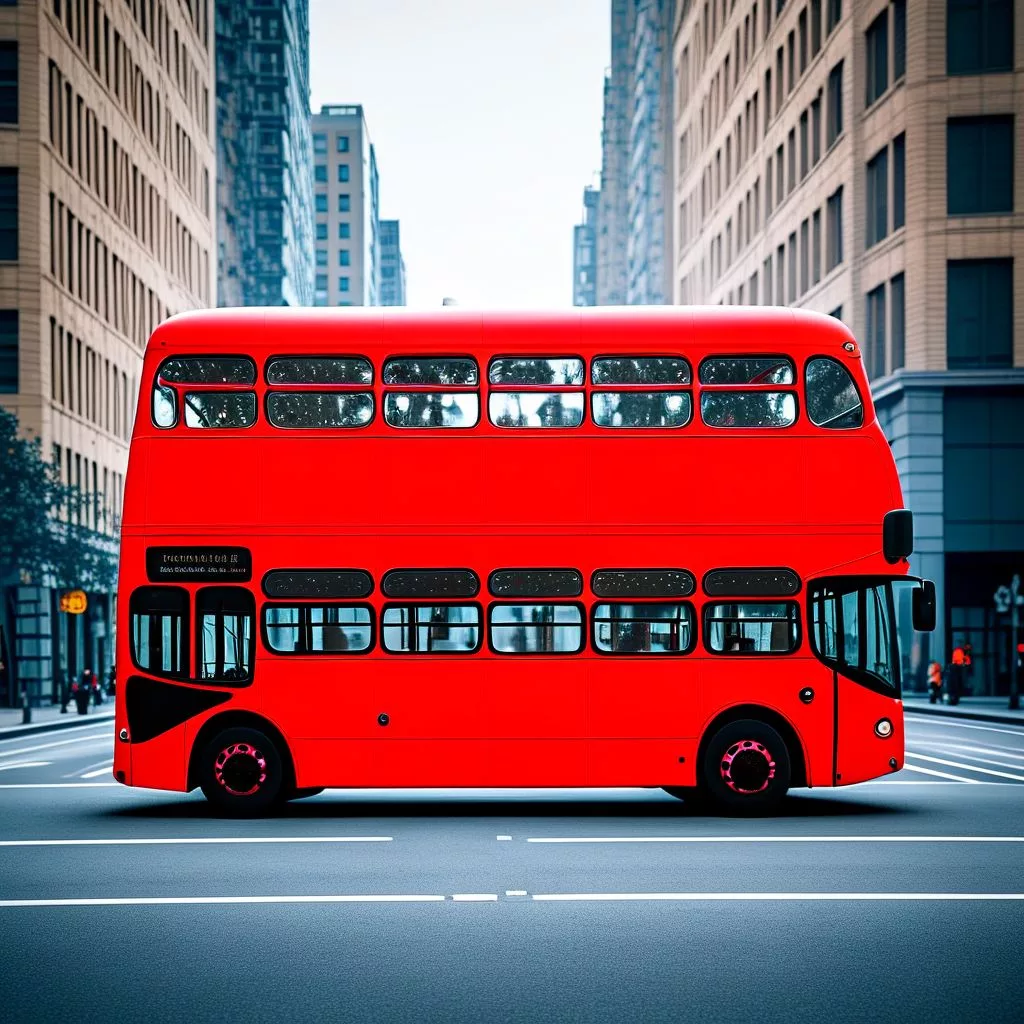Franz Müllner, known as the Iron Man, amazed Cape Town by pulling a giant 16,700 kg double-decker bus through the city, setting his 60th world record. Crowds cheered as he showed incredible strength and determination, inspiring everyone to believe in their own power. His journey took him across seven continents, pushing human limits and uniting people through his amazing feats. Müllner’s story is one of courage, discipline, and the endless chase for greatness.
Who is Franz Müllner and what is his world record feat in Cape Town?
Franz Müllner, known as the Iron Man, set his 60th world record by pulling a 16,700 kg double-decker bus through Cape Town. This incredible feat showcased his extraordinary strength, endurance, and global quest to break records across seven continents, inspiring unity and human potential.
A Morning of Anticipation and Strength
The sun had barely climbed above Cape Town’s Century City when people began to gather, each drawn by whispers of an extraordinary display of strength. In the crisp dawn, the city’s famous red double-decker bus—synonymous with its vibrant tourism and pulsing urban life—awaited at the heart of the square. For most, the massive vehicle seemed immovable, a practical fixture of the city’s daily rhythm. But for Franz Müllner, known to many as the Iron Man, such obstacles invite challenge rather than defeat.
The gathering coincided with the Long March to Freedom event, a celebration that intertwined South Africa’s rich narratives of liberation with the ongoing pursuit of human potential. As anticipation built, Müllner prepared for his colossal task. He secured his harness, steadied his breath, and planted his feet firmly on the asphalt. The bus loomed behind him, weighing a formidable 16,700 kilograms, ready for a journey that would test the limits of physical possibility.
With the entire crowd holding its collective breath, Müllner leaned forward. His muscles, honed by years of relentless training, rippled with effort as he dragged the radiant red bus forward, inch by inch. Children burst into cheers while adults looked on in a mixture of awe and disbelief. In those moments, Müllner did more than move a vehicle—he moved the imaginations of everyone watching, inviting them to reconsider their own boundaries.
A Global Quest Carved in Steel and Grit
Franz Müllner’s display in Cape Town did not mark an isolated triumph, nor did it spring from mere bravado. Instead, this feat belonged to a much larger journey—a quest to claim seven world records across seven continents. By pulling the double-decker bus through the city streets, Müllner reached his sixtieth world record, a number that stands as a testament to his unparalleled endurance and ambition. City Sightseeing Cape Town, stewards of the iconic bus, expressed both pride and gratitude, praising Müllner’s strength and highlighting how the event showcased the city’s enduring vitality. The sentiment quickly spread across social media, as images and videos of the astonishing achievement captured worldwide attention.
This global odyssey began far from South African soil. Müllner launched his quest in Peru, a country whose ancient civilizations once grappled with the immense challenges of geography and survival. From the Andean highlands, he moved on to Holland, a land shaped by its own struggle against water and time. North America and Australia followed, each offering their own unique terrains and climates to test the Iron Man’s resolve. In Asia, particularly Turkey, Müllner faced some of his most daunting challenges—pulling a truck topped with a helicopter and moving a ship, each task pushing the boundaries of what many believed possible. The majestic red bus in Cape Town became the latest—and perhaps most photogenic—chapter in a saga of truly epic proportions.
Physical culture historians may liken Müllner’s exploits to the legendary feats of antiquity—echoes of Hercules or Samson resonate in his story. Yet, Müllner’s journey remains distinctly contemporary, blending the age-old thrill of spectacle with a modern hunger for existential challenge. In a world where technology often takes center stage, the Iron Man’s pursuits revive the poetic drama of sheer physical will and unwavering discipline.
The Making of the Iron Man: Legacy and Inspiration
Müllner’s path to global recognition didn’t begin on the competition circuit. His roots trace back to his time as a member of Austria’s Jagdkommando, the elite Special Operations Forces renowned for their demanding training and indomitable spirit. Those years of rigorous preparation instilled in Müllner the mental toughness and resilience that now define his athletic career. He often credits his military experience as the foundation for his achievements, explaining that the discipline and perseverance forged during those challenging days continue to shape every aspect of his journey.
The close relationship between martial discipline and athletic accomplishment is well documented throughout history, and Müllner embodies this intersection with striking clarity. The psychological resolve required to drag massive objects mirrors the grit necessary to overcome military trials: progress comes inch by inch, and each victory demands a battle against fatigue and doubt.
The concept of strength—both physical and mental—has long captivated artists and thinkers. Baroque masters immortalized the bulging muscles of heroes and martyrs, while Romantic poets sang the praises of the indomitable human spirit. Müllner’s performances, broadcast to audiences across the globe, continue this tradition. Unlike the static art of canvas or marble, however, his displays unfold in real time, under open skies, before crowds of everyday people. Each bus, ship, or truck becomes his canvas, transformed by sweat, focus, and vision.
Unity, Community, and the Enduring Power of Possibility
Cape Town’s role in this record-breaking event added layers of significance. The city, celebrated for its complex social history and breathtaking landscapes, temporarily became a stage for a celebration of both athletic achievement and cross-cultural connection. The partnership between City Sightseeing Cape Town, the Long March to Freedom, and Century City reinforced the city’s commitment to hosting world-class events and fostering a sense of unity. What began as a daring record attempt blossomed into a collective experience—a moment when history, community, and aspiration converged on the city’s streets.
Spectators on that remarkable morning spoke of a renewed sense of pride and possibility. One local resident shared, “Seeing someone achieve the extraordinary right here changes the way you look at your own potential.” Müllner’s journey sends ripples far beyond his own accomplishments, encouraging onlookers to challenge their own perceived limitations.
The tradition of the strongman, with roots stretching back to Victorian circuses and even earlier, occupies a unique place in the world of sport. These athletes have always straddled the line between entertainment and genuine achievement. Müllner revitalizes this heritage for a modern era, offering feats that are both awe-inspiring and deeply meaningful. For him, each record isn’t just a display of power—it’s a meditation on dedication, on the relentless pursuit of mastery, and on the importance of pushing past the boundaries of what seems possible.
A Modern Odyssey Across Continents
Müllner’s quest to set records on every continent reflects a rare kind of ambition. Each region brings its own set of tests: the thin air of Peru’s mountains challenges the lungs and mind, Holland’s damp landscape demands adaptation, Australia’s vastness offers solitude and scorching heat, while Turkey’s blend of history and contemporary culture adds narrative depth. By choosing such diverse settings, Müllner does more than break records; he weaves together a global story of human perseverance. He becomes a modern-day Odysseus, journeying from one corner of the world to another, confronting not only physical obstacles but also the ever-present shadows of doubt and time.
In the end, the image of a single man hauling a double-decker bus through Cape Town lingers as more than a headline. It stands as a powerful symbol—a reminder that greatness emerges not only from physical exertion but also from inspiration and the willingness to confront one’s own limits. Müllner now occupies a space between legend and reality, with achievements that ignite imaginations and remind us all that the pursuit of greatness is both a personal journey and a shared story.
Who is Franz Müllner and what was his world record feat in Cape Town?
Franz Müllner, known as the Iron Man, is a world-renowned strongman and endurance athlete. In Cape Town, he set his 60th world record by pulling a massive 16,700 kg double-decker bus through the city streets. This feat demonstrated his extraordinary physical strength, discipline, and determination, inspiring onlookers and highlighting his global quest to push human limits across seven continents.
How did Franz Müllner prepare for pulling a 16,700 kg double-decker bus?
Müllner’s preparation combined years of relentless training, mental toughness, and physical conditioning. His background as a member of Austria’s elite Jagdkommando Special Operations Forces instilled the discipline and resilience necessary for such challenges. On the day of the event, he secured a harness, focused his breathing, and relied on muscle memory honed over decades to pull the heavy vehicle inch by inch through Cape Town’s streets.
What is the significance of the event taking place in Cape Town?
Cape Town provided a meaningful backdrop that connected Müllner’s feat to broader themes of unity, strength, and freedom. The event coincided with the Long March to Freedom celebration, intertwining South Africa’s rich history of liberation with the modern pursuit of human potential. The partnership with City Sightseeing Cape Town and Century City showcased the city’s vibrant community spirit and its ability to host inspirational world-class events.
How does Franz Müllner’s global quest reflect on human endurance?
Müllner’s journey across seven continents—setting records in Peru, Holland, North America, Australia, Asia, and Africa—represents a modern odyssey of human perseverance. Each location posed unique challenges such as altitude, climate, and terrain. His continuous pushing beyond perceived limits illustrates not only extraordinary physical endurance but also mental fortitude and the universal quest for greatness.
What role did Müllner’s military background play in his achievements?
His experience in Austria’s Jagdkommando Special Operations Forces laid the foundation for his remarkable mental and physical strength. The rigorous training and demands of elite military service taught him discipline, resilience, and the importance of incremental progress—qualities essential for accomplishing feats like pulling massive vehicles and setting multiple world records.
Why do Franz Müllner’s feats resonate beyond just physical strength?
Beyond raw power, Müllner’s accomplishments symbolize hope, inspiration, and the breaking of mental barriers. His performances revive the tradition of strongmen as both entertainers and athletes, blending spectacle with meaningful messages about dedication and human potential. His story encourages people worldwide to reconsider their own limitations and embrace the pursuit of greatness—making his journey a shared human experience, not just an individual triumph.








